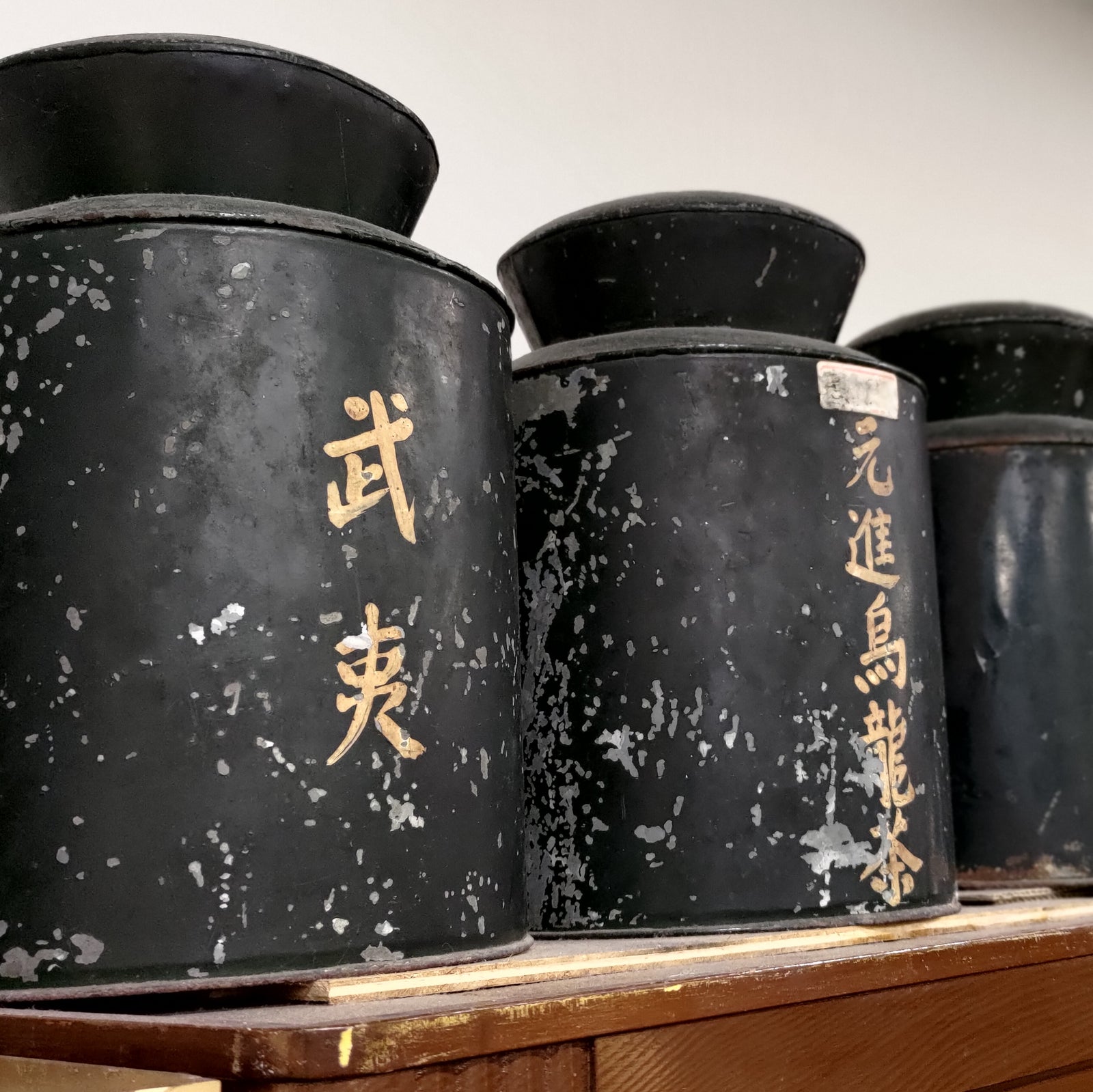Your Cart is Empty
Free Delivery for Over $300 in HK

While strolling through Yongkang Street, you might stumble upon this little shop filled with an array of teas and teaware, evoking a sense of treasure hunting.
But there’s more to it…

Upstairs, there’s a tea space where tea lovers can brew their own tea. The fee is just NT$100 for two hours. Considering this prime location in a bustling golden district, this is a rare gem. No wonder it’s been dubbed a tea lover’s paradise.
Cai Guoyang, the second-generation owner, explains that he initially opened the second floor for tea enthusiasts to have a place to connect. Visitors tired from shopping could also take a break and enjoy tea here. Customers can buy tea from them, bring their own, or even rent the space for classes—some tea instructors do just that.

A Life Tied to Tea from Birth
During a visit, a young man was spotted selling egg waffles at the shop entrance. Curious whether this “store within a store” was outsourced or in-house, I stepped inside to inquire about the owner. The young man selling waffles calmly walked in and sat at the tea table. To my surprise, he was Cai Guoyang himself.
Hailing from a tea family in Tainan, his father founded Gui Hua Tang in 1986. It transitioned from a teahouse to a tea business over the years, adapting to changing times. For as long as Cai can remember, tea has been an inseparable part of his life.
Over 20 years ago, his family even acquired a tea plantation in Lishan. At just 28, while his middle school classmates spent their holidays planning outings, Cai had no such luxury—he was busy helping out at the tea factory.

Unconventional Taiwanese Tea
While Lishan tea is typically known for its light and fragrant style, Cai’s family experiments to showcase diverse profiles. Their signature teas include traditional-style Hong Shui Oolong, known for its deep fermentation and charcoal roasting. For floral-scented teas, they’ve innovated by infusing jasmine into lightly oxidized teas, creating a tea bursting with floral aroma. They also offer aged teas from various vintages, giving customers a chance to experience the depth of matured leaves.
From managing their own plantation to tea production and running both a tea shop and a tea space, this vertically integrated operation is exceptionally rare in Taiwan.

Weathering the Pandemic
Their expansion from Tainan to Taipei happened only five years ago when a friend wanted to exit the business. That’s when they opened Old Teapot. Cai notes that before the pandemic, Yongkang Street was home to countless tea shops. Now, only half remain, but Old Teapot continues to thrive, benefiting tea enthusiasts.
Despite being under 30, Cai exudes a calm, steady demeanor that often leads people to assume he’s in his 30s or 40s. While rooted in tradition, his youthful openness is evident. For instance, setting up an egg waffle stand outside might seem at odds with the classic tea aesthetic, but honestly, after a tea session, who wouldn’t crave some warm, fragrant waffles?

Watching the once-glorious tea culture fade to the fringes—overtaken by coffee—Cai faces the pressing challenge of making tea more accessible to younger generations. One of his ideas is to develop premium, pure tea-based hand-shaken beverages without additives, addressing a gap in the market dominated by sugary options.
With a tea plantation, expertise in tea production, and a willingness to innovate, Old Teapot brims with hope. As I gaze at the collection of vintage tea canisters his father has preserved, I can’t help but feel a ripple of optimism.
Old Teapot
No. 53-1, Yongkang St, Da’an District, Taipei City, 106
https://www.facebook.com/oldteapot
Comments will be approved before showing up.